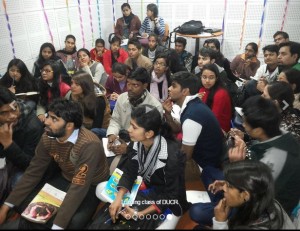Some interesting items on community radio from two very different places.
In Zambia supporters of the Patriotic Front (PF) electoral party “briefly interrupted operations” at the Mkushi Community Radio Station on Tuesday “in protest against [the] alleged political inclination of a Board Member of that Station.” That’s according to the Lusaka Times online newspaper. It’s unclear from the article what kind of “interruption” took place. Apparently the board member in question is a member of the United Party for National Development (UPND).
 Concerns about non-partisanship on the station’s board were raised, but it seems like this sort of thing could be worked out without messing with the station’s functionality. The confrontation reflects tensions flowing from Zambia’s recent national elections. The ruling PF won 48.3 percent of the vote while UPND came in with a close 46.7 percent.
Concerns about non-partisanship on the station’s board were raised, but it seems like this sort of thing could be worked out without messing with the station’s functionality. The confrontation reflects tensions flowing from Zambia’s recent national elections. The ruling PF won 48.3 percent of the vote while UPND came in with a close 46.7 percent.
Zambia’s government isn’t a big fan of community radio, by the way. Back in July the Minister for Media pretty much said so.
“Let me make it very clear that it will not be possible for Government to fund community radio stations,” the Zambia Daily Mail quoted Chishimba Kambwili as saying. “Already we are struggling to fund our own ZNBC, Times of Zambia, Zambia Daily Mail and ZANIS, and it will be hard on public coffers to come up with support for community radio stations.”
At least you could not “interrupt” them. Just a thought. In any event, the Mkushi Community Radio station appears to have been kickstarted by UNESCO as a venue for communication within the Mkushi district. Residents of the area speak Swaka-Lala and share a relatively small border with the Democratic Republic of the Congo’s southern panhandle (see map above).
Meanwhile, the University of Delhi has authorized the broadcasting of candidate statements in its upcoming Student Union elections over its radio station. That would be Community Radio 90.4MHz. All contenders will receive five minutes of statement time from September 7 through September 9.
This measure will “provide an opportunity to the contestants to reach maximum possible students at a time and to communicate their agenda and plan,” the President of the station told India’s The Statesman newspaper. ” The voting percentage should be maximum as possible and we all should strive to make high voting percentage a reality.”
The signal has around a 10km broadcasting contour and is, like a lot of India’s community radio stations, largely run by the faculty and students of a college.



